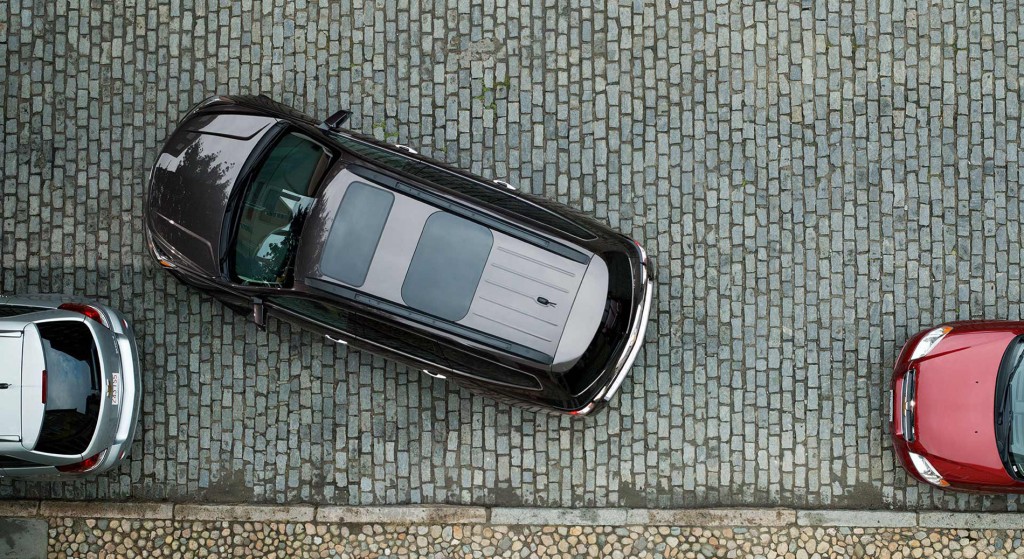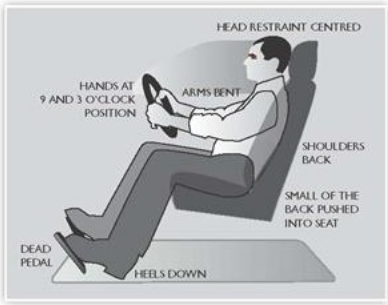7 Driving Skills to Keep Even if they Seem Obsolete
Thanks to technology, driving skills are going out the window, much like our ability to concentrate at length, write neatly and exercise patience. We’re not at all saying in-car gadgets are bad, but the “use it or lose it” principle applies here – relying too much on car technology can waste those precious driving muscles of yours. That’s why you need to strengthen and maintain your driving skills, no matter how obsolete they might seem. So keep your senses sharp. Your willingness to do so will keep you safe, and give you an edge over other drivers who don’t.
Technology Backfires
Remember when your uncle or grandpa said airbags kill more than they save? They may have exaggerated a bit, but they were certainly on to something. There have been many cases of seatbelts, airbags and other car components backfiring, and the new-age gadgetry going into your car is no different.

Take cruise control for example. It’s a brilliant feature that makes long distance driving more comfortable, and can prevent “heavy-footed” individuals from violating speed limits. But here’s a scenario: a driver zooming along a wet roadway in a rainstorm has cruise control switched on. The individual may start hydroplaning, because cruise control has kept them at a constant speed. As you can see, a misunderstanding of a helpful feature can get dangerous.
Here’s another example – collision mitigation. Lane departure warnings, park assist, and blind spot monitors all give you a picture of what’s happening with the help of several cameras. However, thick fog, blowing snow and bright sunshine can negatively affect these cameras. If the build up is too great, the systems will go offline to prevent errors in steering or braking. That response is a safety protocol, but an example of how car devices sometimes do the opposite of what they’re supposed to.
There’s now rising concern that too many displays in cars may cause more distraction. The constant beeps, vibrations, and flashing icons may cause overstimulation, making attention difficult (a similar effect to what happens in people with autism or ADHD).
And let’s not forget the simple fact that your backup cameras, sensors and flashy displays may simply not work, whether it’s due to a software glitch or electrical problem. That’s why it pays to train your mind and senses to work as the ultimate safety device.
7 Driving Skills
1. Reverse parking
You might never have to look at your rearview mirror again, but it’s worth ditching the backup camera from time to time. Relying on your mirrors, windows and eyes to reverse will maintain your spatial awareness, strengthening your ability to back in without error. The result? If for some reason your backup camera is down or obstructed, you can reverse quickly without feeling like you’re hogging traffic at the grocery store.
2. Parallel parking
 Much like reverse parking, parallel parking without devices will challenge your spatial awareness, forcing you to judge distances better and pick . More importantly, those tiny parking spots you think are meant just for smart cars, will appear larger to you. Circling for minutes or paying $30 for a parking spot will no longer seem like reality. And your wallet, passengers and ego will thank you for it.
Much like reverse parking, parallel parking without devices will challenge your spatial awareness, forcing you to judge distances better and pick . More importantly, those tiny parking spots you think are meant just for smart cars, will appear larger to you. Circling for minutes or paying $30 for a parking spot will no longer seem like reality. And your wallet, passengers and ego will thank you for it.
3. Navigation/orientation
It may seem silly to drive without Google Maps (or other navigation apps), but learning to rely on it less can do wonder for your orientation skills. If for some reason an app won’t load or you have no reception, learning how to use landmarks and get your bearings will allow you to get from point A to B without the anxiety.

4. Defensive driving
Defensive driving techniques force you to rely on your senses to avoid collisions with other vehicles. Try to keep it that way. Yes, there are a ton of collision avoidance systems out there, but dependence on these devices can dull your senses. And if for some reason they don’t work, you will have confidence knowing your well-trained mind can spot the dangers before they come too close.
5. Driving IQ
Closely related to the last point is the concept of driving IQ. At times you have to make decisions on the fly, react quickly or judge whether you are too close or too far to pull off a certain manoeuvre. Devices can do that for you, but using your own mind to do so keeps the brain sharp if such technology is offline or unavailable.
6. Concentration ability
The abundance of screens and devices in your car can actually make driving more dangerous. As mentioned earlier, flashing lights and constant beeps can make it hard to focus on the road. Also, when these gadgets are doing some of the driving for you, there’s the likelihood that you won’t feel as engaged while driving, leading to a sort of hypnosis. Try your best to build your concentration skills, so that driving doesn’t become too tiring in the event that these systems go offline.
7. DIY mechanic abilities
Mechanic skills aren’t a driving skill per se, but technology has diminished our skills to make repairs beneath the hood. The reality is that we can’t tamper with our engines as much as before – auto repair is now best suited for the pros. However, most of us can still learn to top off our own fluids, or replace/repair a tire (to some degree). Learning how to handle some of these tasks can make car ownership less stressful, and handy in rare situations such as a roadside breakdown.
Back to Basics
The safety of our roads will always depend on drivers who have their driving skills up to par, even as cars become more automated. Remember, there’s always a chance for gadgets to fail or malfunction. When that happens, your ultimate line of defense will be your mind and senses, the tools drivers have relied on long before there were any sensors or detectors. So strive to use your brain more than high-tech devices when driving. Not only will you keep your mind sharp, others will feel safe when riding with you.




